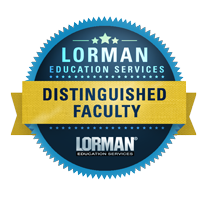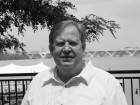How to read 10 times more books in a fraction of the time.
If you’re serious about content marketing, know that reading fuels your writing.
Content marketing is proving to be beneficial for gaining a positioning of expertise and thought leadership. It can improve current client perceptions and aid in client retention. It has also become the magnet for generating online leads and creating new business opportunities without having to pitch for them.
To consistently provide content that is of value to your target audience, you must have a good reading program.
According to a study conducted by McLuhan and Davies, a Toronto based consulting firm specializing in communications training, effective writers spend 40% of their time preparing to write.
Fuel your writing with a reading challenge: Read a minimum of one book-a-week.
Peter Bregman is CEO of Bregman Partners, the author of the best seller, 18 Minutes: Find Your Focus, Master Distraction, and Get the Right Things Done and his most recent book, Four Seconds: All the Time You Need to Stop Counter-Productive Habits and Get the Results You Want in Four Seconds. As a consultant to CEOs and their leadership teams, he has to be rich in knowledge. He does so by reading as many nonfiction books as possible. He reads at least one book a week.
Peter has a unique approach to reading that I’ve personally found helpful. In a recent article for the Harvard Business Review, he shared the method that has allowed him to maintain a consistent reading program. He advises that you shouldn’t read these books word-for-word like they’re fiction books, just understand them.
He developed his strategy for reading nonfiction from his college professor, Michael Jimenez, who taught Latin American history. Jimenez states,
“Fiction demands that we enter a world of the author’s making, inspiring a more immersive experience. Nonfiction — at least the type we tend to read to support our work as business leaders — makes a point and asks us to learn from it.”
Here’s a brief outline of Professor Jimenez’s advice on reading nonfiction, with some personal additions from Peter:
- Start with the author. Who wrote the book? Read his or her bio. If you can find a brief interview or article online about the author, read that quickly. It will give you a sense of the person’s bias and perspective.
- Read the title, the subtitle, the front flap, and the table of contents. What’s the big-picture argument of the book? How is that argument laid out? By now, you could probably describe the main idea of the book to someone who hasn’t read it.
- Read the introduction and the conclusion. The author makes their case in the opening and closing argument of the book. Read these two sections word for word but quickly. You already have a general sense of where the author is going, and these sections will tell you how they plan to get there (introduction) and what they hope you got out of it (conclusion).
- Read/skim each chapter. Read the title and anywhere from the first few paragraphs to the first few pages of the chapter to figure out how the author is using this chapter and where it fits into the argument of the book. Then skim through the headings and subheadings (if there are any) to get a feel for the flow. Read the first sentence of each paragraph and the last. If you get the meaning, move on. Otherwise, you may want to read the whole paragraph. Once you’ve gotten an understanding of the chapter, you may be able to skim over whole pages, as the argument may be clear to you and also may repeat itself.
- End with the table of contents again. Once you’ve finished the book, return to the table of contents and summarize it in your head. Take a few moments to relive the flow of the book, the arguments you considered, the stories you remember, the journey you went on with the author.
Peter states that it takes him 1–2 hours to read a nonfiction book, instead of the usual 6–8. But, the biggest bonus is that he retains much more from this way of reading than reading a book cover-to-cover, word for word.
Content marketing provides you with your own customized professional enrichment program. Experts write. With a focused reading and writing program, so focused, it allows you to gain a positioning of expertise and build awareness to a very specific target audience quickly.
Click on the following link to read Peter’s Harvard Business Review article: How to Read a Book a Week.
Additional articles that may be of interest:
- You need to do this one thing to build your ad agency’s brand …
- A Perfect Platform for Ad Agency New Business
- Nobody Reads Ad Agency Blogs?
- Audience Development Comes Before Business Development
- How to Lose the Fear of Positioning
photo credit: The plot was slipping away… via photopin (license)






